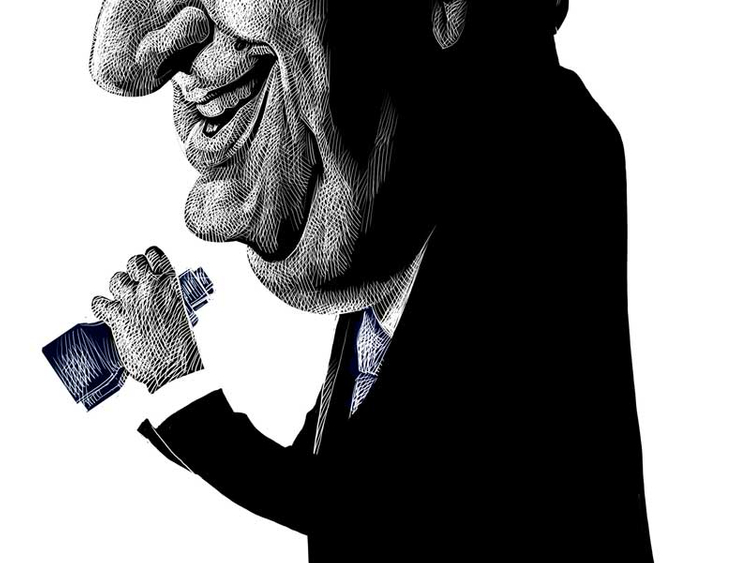Once upon a time, I had a blue United Nations peacekeeping beret. It sat on a shelf alongside other military paraphernalia picked up in travels around different hotspots around the world. The blue beret came from Baidoa, in Somalia, and was gifted from a contingent of Irish and Indian soldiers who were there as part of Unisom. The beret is now gone. So too, it seems, are the very principles of the world body itself. When you’re on the ground in places of turmoil, the UN shows itself in big SUVs and its personnel stay in hotels where they can land a helicopter in the grounds. It’s for emergency evacuation – but it’s also an UNfortunate coincidence that they also happen to have five stars.
When you walk through refugee camps, you know the UN has been there, because there’s a good quality blue sheeting that’s handed out. It makes for quick and handy shelters for the UNfortunate thousands. The bags of grains and lentils too are stamped with the UN logo, just so everyone knows WHO is helping. Now, at the top of this food chain, is Antonio Guterres, as of Thursday the Secretary-General designate who will succeed Ban Ki-moon when he retires on January 1. Just when there were cries for the UN to diversify and select a woman for the top diplomatic position in the world, the UN does what it does – sticks with the status quo -- and selects the former prime minister of Portugal.
In fairness, Guterres had always fared well in the series of straw polls that made this selection process for the Secretary-General position the most open since it was established in the ruins and rubble of the Second World War. The rabble that makes up the General Assembly have little say, and the five permanent members of the Security Council dictate the next top man. Guterres himself knows about dictatorships first hand – he became politically active as a university student in the days when Antonia Salazar ruled Portugal with an iron fist, and then when the generals took over.
In fairness too, Guterres has never swayed from his socialist roots, and formally led the Socialist International while also heading up the United Nations High Commission for Refugees for a decade. In that regard, Guterres does know his way around the UN bureaucracy, knows how to glad hand, and hasn’t make too many enemies – at least not enough to prevent him from de-selection.
The series of straw polls showed that Guterres was the least objectionable of the dozen or so candidates who threw their hat into the ring. What’s more surprising is that Russia never recorded its potential threat of a veto. Moscow had long said that the next Secretary-General should have come from eastern Europe, based on the UNofficial geographic rotation of the job. Three of the previous eight – Trygve Lie, Dag Hammerskjold and Kurt Waldheim – were all western European, and none of the eight had come from a nation that fell within a Communist sphere of influence.
Given the levels of open animosity that have meant that the five permanent members –the United States, the United Kingdom, Russia, China and France – could never agree on any meaningful action to save millions from misery in Syria, and the breakdown in ceasefire negotiations over Aleppo is a perfect example of its rampant disfUNctionalism, it is all the more surprising that Guterres’ selection went so smoothly – in UN terms at least.
His formal biography lists a Roman Catholic childhood in Lisbon and an education to university with a specialism in physics and electrical engineering, and he taught courses in systems theory and telecommunication signals. (Given all of the mixed messages and crossed signals, he’ll need to call on every ounce of that theory in his new role.) He’s fluent in Portuguese, Spanish, English and French. (That’ll help too with speaking out of both sides of his mouth.)
On a personal level, his first wife died from cancer, and he had two children with her. He’s remarried, and will be drawing a salary of $227,253 (Dh834,081), a figure that hasn’t increased since 1997 and is set by the General Assembly. That’s just the salary. It’s going to be a long time before he has to reach into his pocket to buy a coffee, a newspaper, a dinner or a plane ticket. Socialist values or not, Secretary-General Guterres will be making use of those five-star hotels with the helicopter pads for quick escapes. That should allow him ample time to act for the millions who rely on those blue plastic sheets with the UN logo, the lentils and the rice. After all, isn’t that what the job is supposed to entail?













